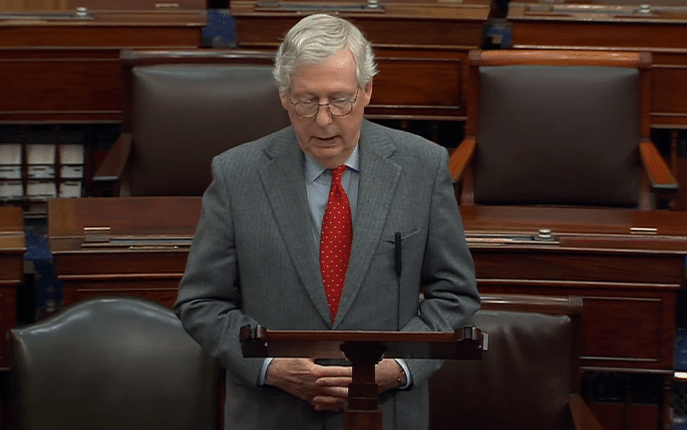House and Senate negotiators are close to completion of another year-end omnibus spending bill, this time to the tune of $1.65 trillion, with passage expected before Christmas assuming it gets done this year at all, with reportedly $25 billion left to be negotiated.
Senate Appropriations Committee Chairman Pat Leahy (D-Vt.) issued a Dec. 13 statement on the progress of the legislation, saying, “Today, Vice Chairman Shelby, Chair DeLauro, and I reached a bipartisan, bicameral framework that should allow us to finish an omnibus appropriations bill that can pass the House and Senate and be signed into law by the President. The pain of inflation is real, and it is being felt across the federal government and by American families right now. We cannot delay our work any further, and a two-month continuing resolution does not provide any relief.”
While passage in the House appears all but assured — House Speaker Nancy Pelosi (D-Calif.) won’t be handing the gavel away to current House Minority Leader Kevin McCarthy (R-Calif.) until January — it is uncertain whether there are either 10 Senate Republicans willing to vote in favor of the legislation or 41 Senate Republicans willing to vote to stop it so that the incoming House GOP majority can get a crack at it.
That is, if there are already 10 Senate Republicans who willing to vote yes for the omnibus, then it won’t much matter what is said against the legislation, barring any defections from the Democratic side of the aisle or from newly minted Arizona Independent Senator Kyrsten Sinema, it’ll be a done deal. The bill will pass without much debate, and President Joe Biden will sign it.
Whereas, if there are 41 Senate Republicans willing to vote no, then it won’t matter if the government is partially shut down over Christmas or if a short-term continuing resolution is passed, because no matter what, on Jan. 3, a new Congress will be sworn in and there will be a Republican House Speaker, whether McCarthy or whoever gets to 218 votes.
The only question is why Republicans — who won the House in 2022 by about 3 million votes — would not just simply wait until January, knowing that the cavalry is on its way?
When the House changed hands to Democrats in 2018 during former President Donald Trump’s Congressional midterm, the 2019 omnibus spending bill was put off until after Democrats got the gavel. Which was remarkable since at that point in time Republicans had the House, the Senate and the White House, and yet because of the Senate filibuster and perhaps a Republican unwillingness to provide substantial funding for Trump’s planned border wall, Democrats were able to run out the clock.
That’s the precedent. Now, fast forward four years, and the tables are turned. Democrats control the House, the Senate and the White House, and are trying to get one last omnibus under one-party rule across the finish line with time working against them.
Outgoing House Speaker Pelosi has vowed to pass a year-long continuing resolution rather than let House Republicans get their hands on it and work on the legislation at all. “Our strong preference is to have a bipartisan omnibus bill,” Pelosi said earlier this month. “We still see a pathway to achieving that. However, if we don’t have it, we may be forced to put forward a year-long CR. This is a last resort.”
And yet, the push on the Senate side is to ensure those pesky House Republicans don’t get a say, effectively disenfranchising more than 54 million Americans who voted for a GOP majority in the House.
As for Senate Minority Leader Mitch McConnell (R-Ky.), he’d rather have a year-long omnibus or else do a short-term continuing resolution. In a Dec. 14 floor speech McConnell outlined the Senate Republican position: “Our side has made it clear that the Senate has until December 22nd to complete either a full-year funding bill or a short-term C.R. into early next year. That is the deadline, and those are the two options.”
Or, Senate Republicans can just wait two weeks and work with the incoming House Republican majority to make the legislation better from their perspective. This is actually an opportunity to use the stalemate to force concessions on Democrats, but instead, if the omnibus offered by Senate Appropriations is “good enough” McConnell wants Republicans to institutionalize the Biden legislative agenda for one more year.
In 2019, then-incoming House Speaker Pelosi’s first order of business was passing the omnibus bill a Republican-controlled Congress could not pass in 2018 because it did not want to and Democrats had zero incentive to support it. Today, the roles are reversed and despite having no visible incentive to support the Democratic-controlled Congress’ omnibus bill, Republican leaders like McConnell are still anxious to do exactly that. Why?
Robert Romano is the Vice President of Public Policy at Americans for Limited Government.








